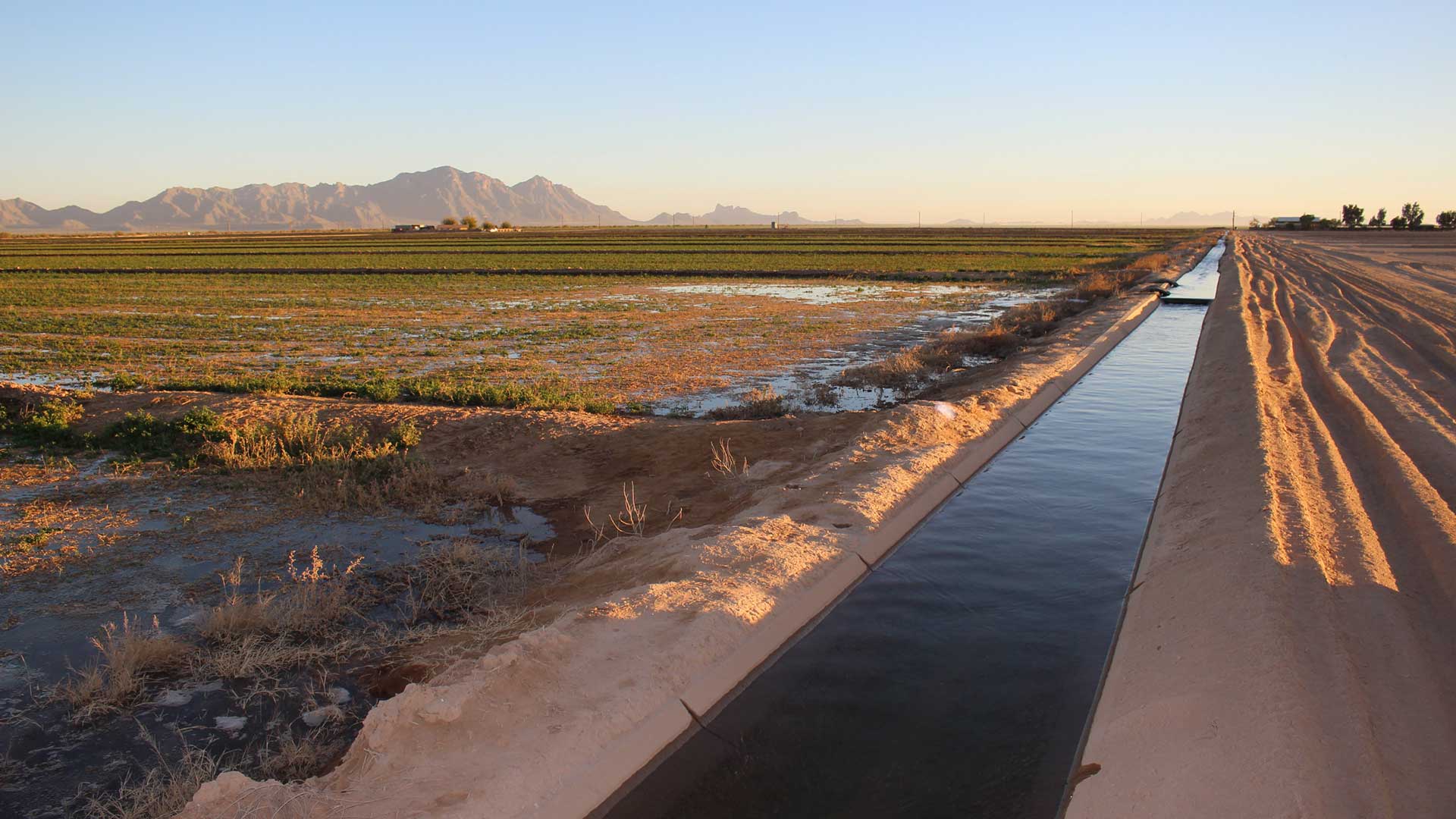 Water from the Colorado River flows through an irrigation canal at an alfalfa farm near Eloy, Arizona.
Water from the Colorado River flows through an irrigation canal at an alfalfa farm near Eloy, Arizona.
The Buzz for June 21, 2024

This is the first in a three-part series looking at the 3 Rs: recycle, reduce, reuse.
Environmentalists have rallied around the cause of reducing our reliance on finite and polluting resources for decades.
But efforts to cut back on everyday materials that have limited quantities have picked up in recent years. Chief among them for Arizonans is water.
Most of Arizona's water use goes to agriculture, with estimates from 2019 saying as much as 72% of all water usage in the state went to farms and ranches.
"If you look historically as a state, we actually use less water now than we did in 1962 even though we have three times the population and the value of our ag production is 50% more," said Ethan Orr, an Agricultural Education Technology and Innovation Specialist at the University of Arizona Cooperative Extension. "And the reason we've been able to do that is by investing in ourselves, we have better conveyance, basically, cement lining and then putting solar panels over canals, better crops, the U of A has done a lot of research into a new crop, guayule, that has a lot of opportunity and better watering systems. And then with Governor Babbitt and the AMAs."
Orr said that his program has given grants totaling $23 million to farmers, but the resulting work has saved more than 36,000 acre-feet of water. That is a public cost of $209 per acre-foot conserved. He compared that to costs that the state would incur if it were to start desalinating water in the Gulf of California, which would run around $3,000 per acre-foot.
He said it is important to make such investments because it allows rich farmland to stay productive while allowing the state to grow.
"80% of the alfalfa in the state ends up consumed by Arizonans in the form of milk. And the reason we grow it is that it has very high margins. But it's not just water intensive. You're getting 10-12 cuttings off of that. One of the systems we put up in our county, the gentleman is double-cropping corn, which means that you can grow one thing of corn and then grow it again in the same season. Tucson is the only place outside of Egypt that we can triple-crop wheat. And so it's not just about water, it's about soil and sun and reducing the carbon footprint of the transportation of those goods. And we are getting better."
A future step for those crops is another spot where an Arizona-based company is working to lessen its waste. Sprouts Farmers Market has done away with providing its customers with free single-use plastic bags.
"We found that one of the biggest and most tangible impacts that retail grocery in general has on our environment is the distribution of single-use plastic and paper bags, Justin Kacer, Manager of Sustainability at Sprouts. "So understanding that is a major impact and something that we can control in partnership with our customers. In 2023, we decided to eliminate single-use plastic and paper bags. And really tried to encourage customers to bring in their own reusable bags. We didn't eliminate bags entirely. We do offer a variety of reusable bags. The most cost-effective one is 10 cents a piece, which can be used over 125 times and incorporates recycled content into that bag."
Caser said since ending its use of free plastic bags, the company has saved between 160-200 million bags.
"I think it's a phased approach. I think the checkout bags is a logical, you know, first step, just it's kind of a mind shift that that needs to happen and ensuring that you have reusable bags in your car. There's so much of a take make waste mentality, I think in our culture in general. So like, this is a good first step."
He said the store is taking further steps to reduce the use of plastic waste elsewhere. It recycles the plastic that comes in as part of bulk packaging, and it sells reusable produce bags in the hopes that customers will opt for those rather than the single-use bags that are normal in grocery stores.
Encouragement through savings goes beyond just grocery stores. Tucson Electric Power has for years hosted programs aimed at reducing power consumption, particularly during hours of peak consumption, 3:00 pm to 7:00 pm. Its latest program, Net Zero Hero does just that, in the hopes that it will help the company with a goal of major carbon emission reduction.
"One of the things that we talk about through the Net Zero Hero program is working with customers and helping them find ways that they can shift their energy usage," said TEP spokesperson Joseph Barrios.
TEP has a goal that it has stated with the Arizona Corporation Commission of reducing carbon emissions 80% by 2035. But Barrios said it has an aspirational goal of being at essentially zero emissions by 2050.
The company continues to grow its renewable energy infrastructure, adding solar power plants and battery storage to allow green energy to be available for larger swaths of the day beyond solar's peak production hours.
But, another way the company helps reduce its reliance on power plants that burn fossil fuels is to help customers use less, particularly when it comes to what is often the biggest electrical demand for Southern Arizonans, cooling.
"We have rebate programs for customers who are in a position to replace their air conditioning system with a new, more efficient air conditioning system. There are tuneups that they can have performed on their air conditioning system to reduce usage, they may invest in a smart thermostat, which we offer on our website at a discounted price. You know, smart thermostat. We also have a smart rewards program, where we work directly with customers who have a smart thermostat. And by volunteering to participate in that program is not mandatory, we can essentially adjust your thermostat during high heat events to try and reduce that on peak usage."




By submitting your comments, you hereby give AZPM the right to post your comments and potentially use them in any other form of media operated by this institution.